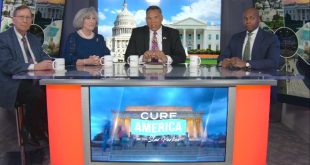The U.S. Supreme Court this week upheld religious exemptions for the Obamacare contraception mandate for Little Sister of the Poor, a Roman Catholic organization that helps the poor and elderly.
Under the Patient Protection and Affordable Care Act, covered employers must offer health insurance plans to employees that cover contraception — even if these employers had religious or moral objections and opposed potentially abortion-inducing drugs. The exemption carved out under Obamacare for houses of worship and affiliates didn’t go far enough. Religious organizations like Little Sisters of the Poor and secular ones like March for Life also opposed the mandate. They both sued the government to stop enforcement.
The Supreme Court in 2016 unanimously vacated lower court rulings against Little Sisters of the Poor and other religious organizations, sent the cases back to the lower courts, and asked them to reconsider the cases. The Trump administration broadened religious and moral exemptions to the mandate in 2017, but New Jersey and Pennsylvania sued the federal government to remove the exemptions. Little Sisters of the Poor essentially won its case but intervened in the states’ lawsuit avoid paying fines and to protect the religious rights of other organizations pushing back against the government’s abuse of power.
Seven of the nine justices ruled (PDF) that the Trump administration had the authority broaden religious and moral exemptions and that the rules aren’t defective, as the states alleged. Justice Clarence Thomas delivered the opinion. An excerpt:
Under a plain reading of the statute, then, we conclude that the ACA gives HRSA [Health Resources and Services Administration] broad discretion to define preventive care and screenings and to create the religious and moral exemptions…We hold today that the Departments had the statutory authority to craft that exemption, as well as the contemporaneously issued moral exemption. We further hold that the rules promulgating these exemptions are free from procedural defects. Therefore, we reverse the judgment of the Court of Appeals and remand the cases for further proceedings consistent with this opinion.
The Supreme Court ruled in 2014 that Christian retailer Hobby Lobby as a closely held corporation was exempt from the contraception mandate.
 Black Community News News and Commentary for Christians
Black Community News News and Commentary for Christians



